Is Love a Drug? Lucy Prebble’s The Effect
Tuesday 1st August 2023
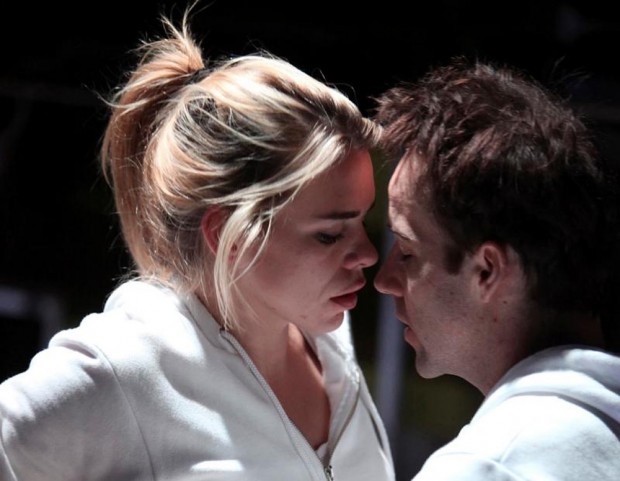
One of the most important characteristics of contemporary British new plays is that they aim to provide a forum for the discussion of ideas. For the general public, science is one subject that most often provokes passionate debate. As religious belief declines in Britain, science seems to hold the key to the big questions in life: where do we come from?; who are we?; how do our minds work?; what can we do with ourselves? During the past 40 years, British theatre has enthusiastically embraced these questions, generating many public debates about metaphysics and personal identity. So Lucy Prebble’s brilliant play, The Effect — which was first staged at the National Theatre in London in 2012 (starring the actress and singer Billie Piper, who was famous as Rose from the BBC’s Doctor Who science-fiction television series) — is part of a theatre tradition that includes Peter Shaffer’s Equus, Tom Stoppard’s Arcadia and Michael Frayn’s Copenhagen.
The context of the play, and of Prebble’s career, is British theatre in the new millennium, which has been an explosive time for new writing for the stage. During the first ten years of the new millennium more than three thousand new plays were written and staged in the UK. Everywhere you looked, there was a huge variety of new work by a huge variety of new writers, young, old, and all ages in between. In the free atmosphere of contemporary Britain, anyone could become a playwright. They didn’t have to study playwriting at a university; they just had to put pen to paper. This aspect of Do It Yourself culture has been extremely liberating. As theatres competed with each other to find the latest sensation, the demand for new plays grew and grew all over the country. This abundance created a massive diversity of different kinds of playwriting, from tough in-yer-face shockers to cool verbatim accounts of political questions, and from impassioned family dramas to big plays about the state of the nation.
In this exciting cultural context, Lucy Prebble, who was born in 1981, arrived quietly but confidently. While studying English Literature at Sheffield University, she wrote a short one-act play called Liquid and this won her the Sunday Times Most Promising Playwright award at the National Student Drama Festival in 2002. Encouraged by this success, she joined the Royal Court Young Writers Group and wrote The Sugar Syndrome, a story about a 17-year-old girl who looks for love on the internet, and which opened at the Royal Court in October 2003. It won her the prestigious George Devine Award and the Critics’ Circle Drama award for Most Promising Playwright. Although most people expected Prebble to write another play, her career took a sideward swerve — she started writing dramas for television. This is typical of British playwrights: they often move freely between the different disciples of writing dramas for theatre, radio, television and film. Recently several big name playwrights have also written musicals for commercial theatre.
Prebble’s greatest success in television was when she adapted Secret Diary of a Call Girl — which is a book of blog posts by a high-class London “escort” — for ITV, after meeting its author, the anonymous Belle de Jour, and then interviewing many other women in the sex industry. The television series starred Billie Piper, who played Belle the call girl in three series of the drama from 2007 to 2011. During the process of working on these episodes, Prebble learned a lot about collaboration and about clarity in storytelling. In 2009, with director Rupert Goold she created Enron, a play about the scandal of the financial collapse of the Texan energy giant in 2001, and which took the form of a semi-musical with a host of stage effects, from small dinosaurs to laser blades, and with song-and-dance routines. The success of this play was huge and it won a shelfload of awards, triumphantly demonstrating Prebble’s theatre-making skills. Three years later, the National Theatre staged The Effect, which won another avalanche of critical praise.
At the centre of The Effect is an apparently simple question: why do we feel like we do? Is feeling well or feeling depressed just the result of chemical reactions in the brain, or is there something else? With a beguiling skill, Prebble takes this idea and questions it by subjecting it to a whole series of dramaturgical tests. The play is set in a facility managed by Raushen, a pharmaceutical company which is running clinical trials of a new dopamine-heavy drug that could, if successful, cure depression. The experiment is a four-week residential test with strict rules. Prebble focuses on two young volunteers: Connie and Tristan. They are from different backgrounds: she is a psychology student from Basingstoke in England while he is a drifter from Coleraine in Northern Ireland. While Connie and Tristan are the young guinea pigs, Lorna and Toby are the older doctors. They are testing the effects of the new drug and they monitor the reactions of the two young people. This testing regime immediately raises metaphysical questions about why we feel the way that we do: if we are depressed, will altering the balance of chemicals in our brains by the use of a drug make us feel better, and will this improvement of mood last even after we stop taking the pills? Or does depression come from our feeling strongly the real sadness of the world and of our imperfect human existence? These are the core questions of contemporary Prozac culture.
All this is fascinating enough, but Prebble quickly raises the stakes of her story by postulating a fascinating new situation: Tristan and Connie fall in love. Immediately, new questions appear. Like something from Aldous Huxley’s classic book, Brave New World, the relationship between pill and body is explored. Take a pill, and hey presto! You feel happy; you love yourself; you love the world; you fall in love with the first person you meet. Yet, as Prebble makes clear, reality is much, much more complex. You can feel sexual desire for someone, but not be in love; you can be in love with someone, but not feel sexual desire; you can be in love with the idea of being in love; your feelings might change. Behind all this is the conundrum of truth. At one point, Connie uses the analogy of being drunk: if a man who is drunk tells you that he loves you, you can easily realise that he is not telling the truth. He’s just drunk! So what about a man who has taken a new happy pill? If he tells you he loves you, is he telling the truth, and how do you respond?
In the sealed-off environment of the residential institution, with the volunteers surrounded by the rituals and equipment of modern medicine, it is easy for them to become disorientated. This is one of the effects in The Effect. Normal life, and normal reality, soon seems to be far away. The volunteers are not allowed to use mobile phones so they are cut off from their normal friends, and from their normal relationships. In the immediate here and now, there is only Connie and Tristan. And the doctors, especially Lorna. In this claustrophobic situation — without the usual distractions of everyday life, without shopping or visits to the cinema or walks in the park with your dog — all emotions tend to be exaggerated. And heightened. This is exactly what the doctors want to measure. But what do these physical changes in the volunteers — raised blood pressure, inability to sleep, lowered appetite — feel like to the participants? Well, to them it feels as if they are falling in love; to them, it feels like the first rush of desire and happiness. Once again, the problem is one of reality. How much of this is mutual attraction between two young people, and how much is it the result of being together in a sealed environment, like a holiday romance; and how much comes from the increasing dosages of the new and untested drug?
In this hothouse, Connie and Tristan are like explorers in a dark jungle. They see shafts of light and are drawn to the warmth. But, as far as I know, there is no chemical reaction for trust. At one point in the play, these two volunteers go on an adventure. By doing something transgressive together they are building trust. And isn’t trust essential to the growth of love?
But Prebble has not finished with her own experiment. She now introduces the notion of the placebo, the idea that volunteers in drug trails can never be sure if the pills they are taking are the new drug or just an inert substance. So on the one hand her two volunteers are building trust in each other; on the other, they cannot be sure that they are each taking the same chemicals. Of course, Prebble rightly shows that, in the history of medical science, sometimes the placebo is just as effective as the pill. One thinks, for example, of homeopathic medicine. But now neither Connie nor Tristan know who has taken the placebo and who has taken the new drug. In my mind, this aspect of The Effect can be summed up by an English proverb which states: “Curiosity killed the cat.” To which I always say, “But knowing brought it back!” Knowledge is better than uncertainty.
So Prebble has created a theatre experiment in which she puts her characters in a series of puzzling situations, to see how they react, what they feel and what they say. In the binary discussions between the doctors Toby and Lorna, Prebble uses a similar situation to explore some of the bigger questions of the play. Toby passionately argues that we are living through an epidemic of depression, which is simply the result of a chemical imbalance. Because this involves levels of chemicals in the brain, it can be cured by changing those chemicals. In other words, it can be cured by medication. Lorna takes the opposite view: she argues, with equal passion, that “so-called depressed people have a more accurate view of the world” and that the cause of their illness often lies in psychological situations, with a complicated range of external factors — such as relationships, memory, personal experiences — which really cannot be reduced to chemistry, or pharmacology. As Sigmund Freud would have understood, depression is a condition of the human soul.
While she is careful to be fair to all her characters, Prebble herself clearly leans towards Lorna’s ideas rather than to Toby’s. She also shows how their discussions are fuelled by the emotional relationships that they themselves have had. When talking about mental states and psychological problems there really is no such thing as an objective point of view. Everything is subjective. Prebble cleverly draws parallels between the two couples: Connie and Tristan, and Lorna and Toby. Clearly, what is going on — especially where love is concerned — is something much more complex than the use of artificial stimulants. Or, to put it another way, if love and depression are both states of mind that depend on chemicals in the brain, the chemistry of these kinds of interaction is so complex and so changeable that no one pill, nor even a series of drugs, could ever really change it. The idea that one pill will make you fall in love, or that one pill can ever really “cure” depression, is just a science-fiction fantasy. Reality is more complicated; the soul cannot be found at the other end of a microscope.
The Effect is both an emotional and a cerebral play. It has to be said that the premise of the play is fascinating, immediately engrossing. In the past, our European ancestors thought that the soul dwelt in the spleen, but today we are more likely to believe materialistically that the mind is more important than the soul, and that it resides in the brain. And that all neurological problems, including the devastating disability of depression, are caused by brain chemistry. In two matching mini-lectures by the two doctors in the story — Lorna and Toby — the brain, perhaps the most complex object in the known world, is intellectually dissected. Prebble also throws in plenty of satirical asides, especially about gender politics, and there are many fascinating nuggets of information as well as some very good jokes. There are oblique references to the Renaissance idea of love as madness and perceptive one liners such as “The history of medicine is the history of placebo”.
The inspiration for the play was a news story. Prebble says that she became interested in the subject of drug trails when, in 2006, there was a series of clinical trials in which six volunteers suffered multiple organ failure at the independent Parexel drug trial unit based at Northwick Park Hospital in north-west London. The volunteers were healthy and they were testing an anti-inflammatory drug when they suffered this completely unexpected reaction. Two men especially were critically ill, and were treated in an intensive care unit. All the patients survived. This incident, which was reported widely in the media, gave Prebble the idea for the play. As part of her research, she volunteered to take part herself in a residential drugs trial, in Croydon, south London. It was a difficult experience. She says: “I was really scared. And I’m really squeamish. I find needles really difficult and it’s an incredibly intense environment. You’re in a hospital ward for weeks and weeks. I only did it for a few days.” It was enough.
Of course, as Prebble knows, in Europe and America depression is now a modern plague. The statistics are appalling: depression is the number one psychological disorder in the western world. Clinical or major depression is growing at an incredible rate. It is an increasing problem for all age groups, in every country, and affects most importantly the young, especially teenagers. People of all backgrounds, lifestyles and nationalities suffer the effects of this plague. In some cities, up to 20 per cent of people experience symptoms of depression. It is also estimated that 35 to 40 million Americans who are living today will suffer from major depression at some time during their lives, with about half of this amount suffering from recurring symptoms for many years. Some medical researchers believe that about a quarter of suicides in America are due to undiagnosed, or misdiagnosed, major depression. Up to 80 per cent of those who commit suicide have been found to have suffered from major depression. In Britain, there is evidence of acute anxiety or depression in 20 per cent of people aged 16 or over, with 21 per cent of women reporting these kinds of symptoms and 16 per cent of men. People who have been divorced or separated are more likely to have symptoms of mild to moderate mental ill health, with 27 per cent showing signs of mental illness compared with 20 per cent of those who are single, cohabiting or widowed, and 16 per cent of those who are married or in a stable relationship. Higher levels of distress are also recorded in social groups whose members are not in paid work: 23 per cent of the unemployed report they are experiencing mental health issues, compared with 15 per cent of those in paid work. And depression is a disease of the contemporary world: 10 times more people suffer from major depression now than in 1945. And there is 10 times more major depression in people born after 1945 than in those born before. This very strongly suggests that the root cause of most depression is not a chemical imbalance because human genes surely do not change so rapidly. Likewise, political programmes, as imposed by governments, can also have an adverse effect on the mental health of populations. There is now evidence that government austerity policies — in the wake of the global financial crash — contribute to depression. The public prejudice against people with depression is also significant: it means that often this is a silent killer.
As the clinical psychologist Oliver James argues in his 2007 book, Affluenza, mental problems are the key disease of the contemporary world. Selfish capitalism, or, to use his neologism, “affluenza”, is bad for your mental health. This condition spreads especially through affluent countries, notably the English-speaking ones, where people define themselves by how much money they make. They are also ruled by superficial values: how attractive they look, how famous they are, how much they are able to show off. Other experts believe that, if the growth in mental illness continues, by 2020 it will be the second most disabling condition in the world, second only to heart disease. Behind the statistics, the medical facts are stark: while the usual treatment of depression by anti-depressants may sometimes control the symptoms, it usually does little to give sufferers depression-free lives. Prebble’s imaginative exploration of depression and the clinical trials of a pill that will cure or alleviate the symptoms of this disease is therefore both very relevant and very timely. Nor is she alone in her interest in this area of science. Tom Stoppard’s latest play, called The Hard Problem — which premiered at the National Theatre in London this year — is also about neuroscience.
If you study the medical research and the academic sociology, as well as the metaphysics, behind this subject, you soon become convinced that Prebble’s text is extraordinary. She manages to explain all the central ideas and scientific concepts of the debate without ever using any clumsy exposition, and her scenes are beautifully intricate and well crafted. The discussion between Lorna and Toby about the nature of depression — whether it is a disease that can be cured or simply a fact of life which might be exploited for financial gain — says more about this debate than many experts have in the ever-lengthening bibliography on the subject. There is also a lovely harmony about The Effect that appeals almost subconsciously to audiences of the play. And it has a wonderfully surprising ending. As Prebble says: “In a play about the heart versus the head, you want the heart to win, even if it’s not in the direction you expect.” Or, as countless pop songs suggest, maybe it’s love that is a drug, a drug that can cure the sickness of the soul.
© An earlier version of this article appeared as ‘Czy Milosc To Narkotyk? O Sztuce Efekt Lucy Prebble’ [Is Love a Drug? Lucy Pebble’s The Effect], a programme note for the revival of The Effect, Teatr Studio, Warsaw, April 2015.

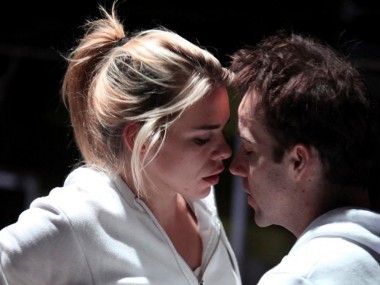
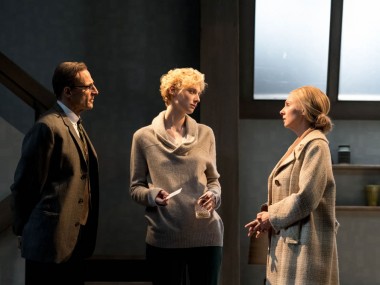
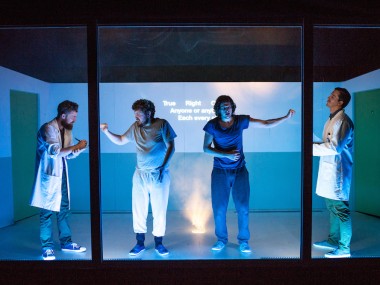
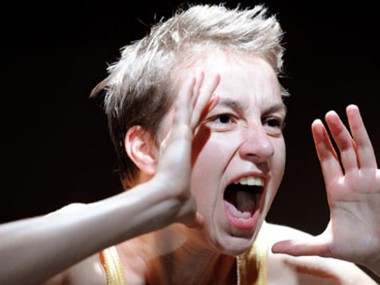
1 Comment
on Tuesday 2nd January 2024 at 12:56 pm